AI Agents vs Agentic AI: What’s the Difference and Why Does It Matter?

Artificial intelligence (AI) has become one of the most disruptive technologies of our time. From chatbots that help customers solve problems in seconds to self-driving cars that navigate busy city streets, AI is transforming industries and reshaping the way we live and work.
But in this fast-growing field, two terms often create confusion: AI Agents and Agentic AI. At first glance, they might sound similar, but they represent two very different approaches to artificial intelligence. Understanding the difference is crucial not only for technologists and business leaders but also for anyone curious about how AI will impact our daily lives.
In this article, we’ll explore what AI Agents and Agentic AI are, how they differ, where we see them in action, their benefits and challenges, and why the distinction matters for the future of AI.
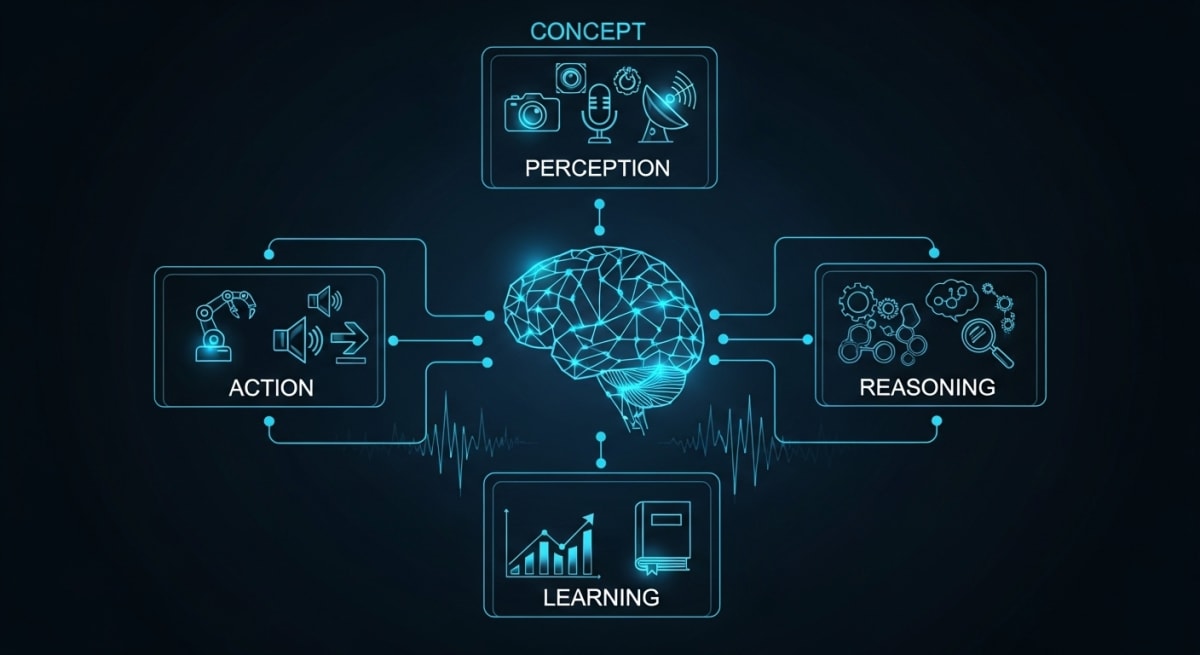
What Is Agentic AI?
Agentic AI refers to systems designed with autonomy at their core. These systems can perceive, reason, act, and learn without constant human direction. Instead of being told step by step what to do, Agentic AI sets goals, makes its own decisions, and adapts to changing environments.
Think of it as an AI that behaves like a digital decision-maker rather than a passive assistant. Agentic AI works through four essential stages:
Perception – Gathering data from the environment (e.g., cameras, sensors, text inputs).
Reasoning – Interpreting this data to understand what’s happening.
Action – Taking decisions and carrying out tasks based on its understanding.
Learning – Improving over time by learning from feedback and new experiences.
This makes Agentic AI highly adaptable and capable of solving problems in dynamic, unpredictable situations.
Examples of Agentic AI:
Self-driving cars that make split-second decisions on the road.
Healthcare systems that analyze medical data and recommend treatments.
Cybersecurity tools that autonomously detect and respond to threats.
Supply chain optimization where AI adapts delivery routes in real time.
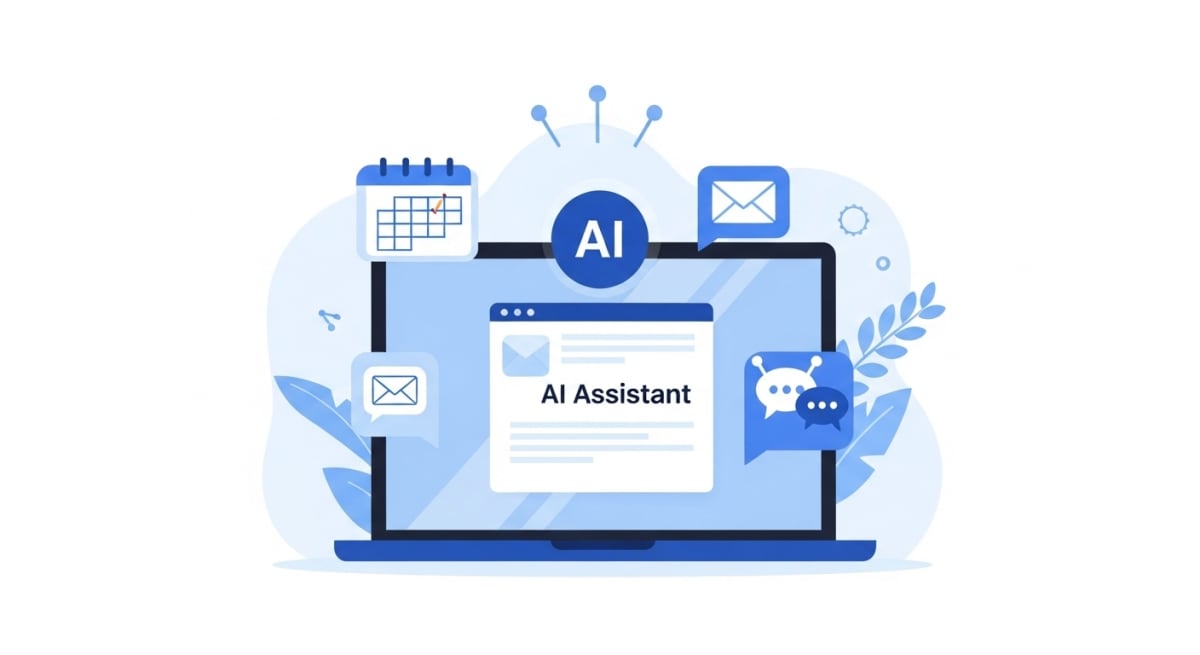
What Are AI Agents?
AI Agents, by contrast, are task-focused assistants. They’re designed to follow predefined instructions and automate specific tasks. Unlike Agentic AI, they don’t have full autonomy or reasoning ability instead, they execute commands given by humans.
Think of an AI Agent as a virtual helper that does what you tell it to do, but doesn’t go beyond its programmed scope.
Examples of AI Agents:
Chatbots that answer FAQs or resolve simple customer issues.
Email assistants like Gmail’s Smart Compose, which suggests quick replies.
Voice assistants such as Siri, Alexa, or Google Assistant.
Productivity tools like GitHub Copilot, which helps developers by suggesting code snippets.
Key Differences Between AI Agents and Agentic AI
While both fall under the umbrella of artificial intelligence, the biggest difference lies in autonomy and complexity.
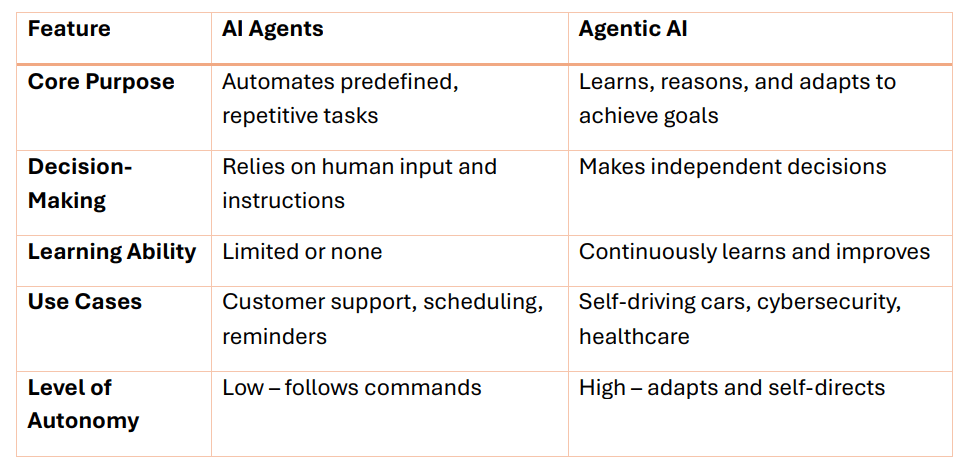
In short, AI Agents are assistants, while Agentic AI behaves more like collaborators or problem-solvers.
Real-World Applications
Both AI Agents and Agentic AI are already shaping industries in different ways. Let’s look at some examples:
Agentic AI in Action
Self-Driving Cars: Tesla’s Full Self-Driving system learns from road conditions and continuously adapts.
Healthcare: IBM Watson Health analyzes massive amounts of medical data to provide diagnostic insights.
Cybersecurity: Darktrace uses autonomous learning to detect and neutralize threats in real time.
Supply Chain: Amazon’s warehouse robots adapt to changing conditions while managing inventory and logistics.
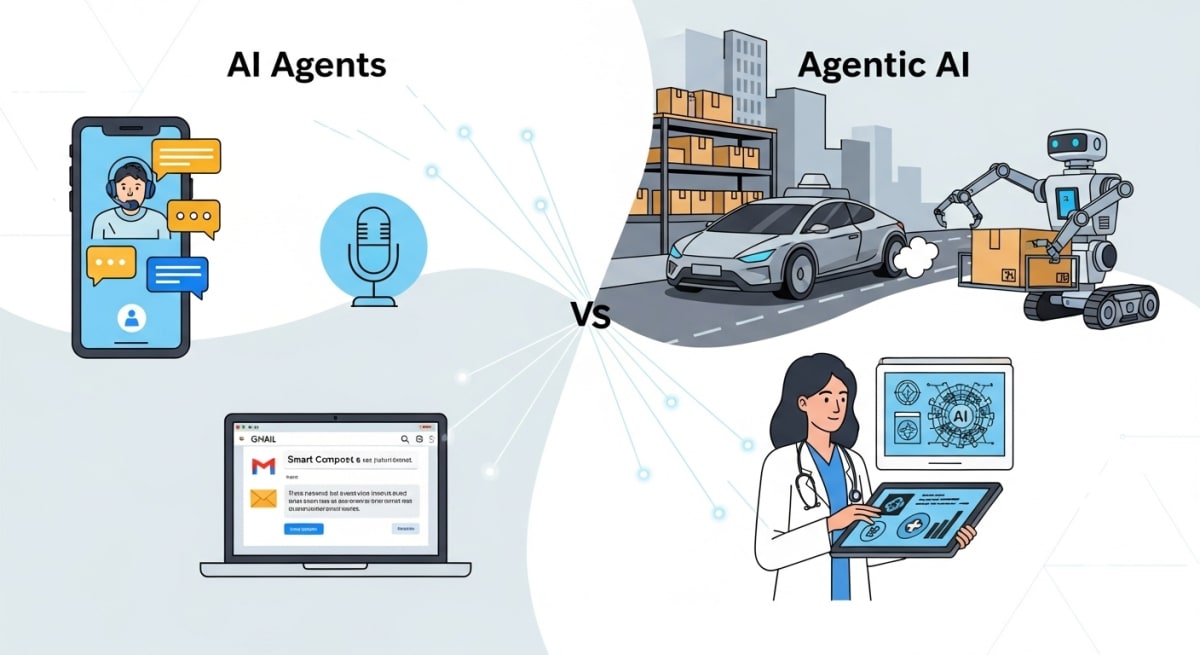
AI Agents in Action
Customer Service: Zendesk’s chatbots resolve customer issues without human involvement.
Voice Assistants: Siri and Google Assistant manage reminders, alarms, and quick queries.
Email Management: Smart Compose saves time by suggesting relevant replies.
Developer Productivity: GitHub Copilot assists programmers by suggesting real-time code completions.
Why Does This Distinction Matter?
You might wonder: Does it really matter if something is an AI Agent or Agentic AI? The answer is yes and here’s why:
Business Strategy: Companies must decide if they need automation (AI Agents) or adaptive intelligence (Agentic AI). The investment, infrastructure, and potential impact differ significantly.
Risk & Responsibility: Agentic AI raises questions of accountability. If an autonomous AI makes a mistake, who is responsible the developer, the operator, or the AI itself?
Ethics & Transparency: The more autonomous AI becomes, the greater the need for explainability and trust. AI Agents are predictable, but Agentic AI’s decisions can be harder to trace.
Workforce Impact: AI Agents typically replace repetitive, low-skill tasks, while Agentic AI has the potential to replace or complement decision-making roles in areas like healthcare, law, and logistics.
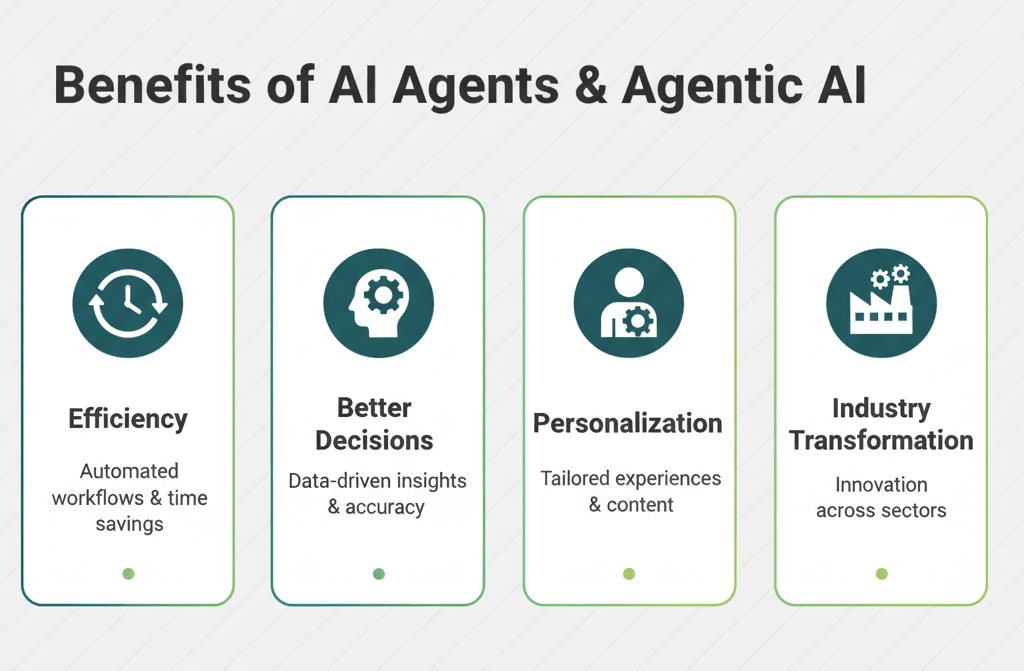
Benefits of AI Agents and Agentic AI
Both bring enormous opportunities:
Benefits of AI Agents
Increases efficiency by automating repetitive tasks.
Reduces costs in customer service and operations.
Frees human workers for more complex, creative work.
Benefits of Agentic AI
Handles complexity and uncertainty better than rule-based systems.
Improves over time with learning and adaptation.
Enables groundbreaking innovations like autonomous vehicles and precision medicine.
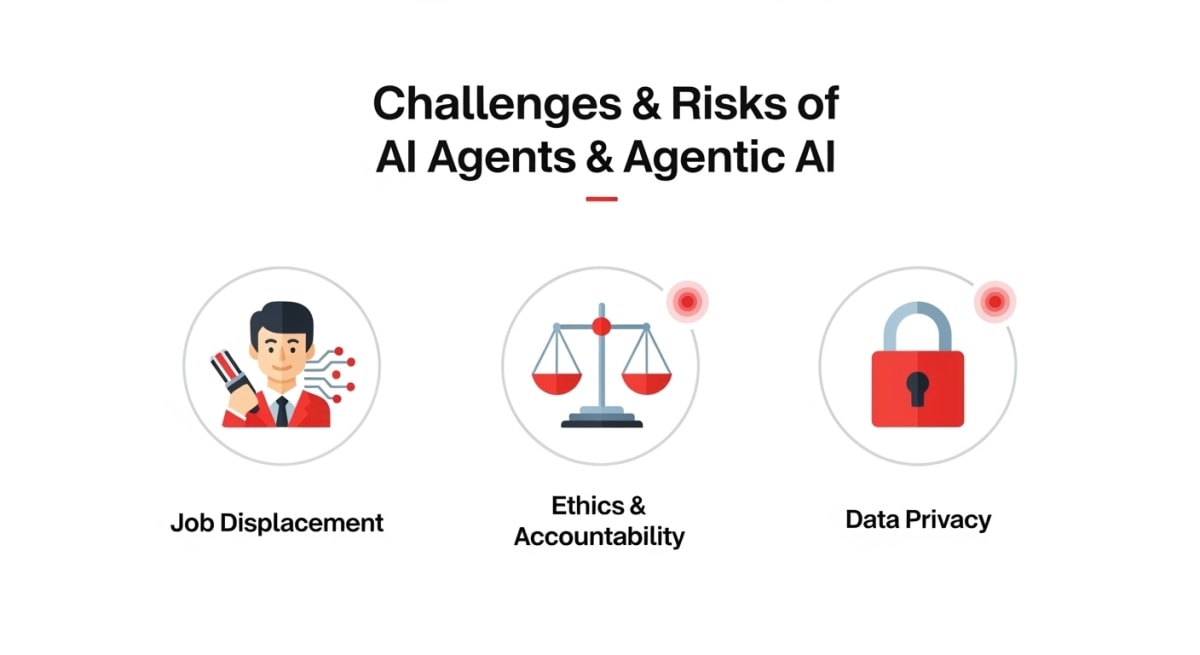
Risks and Challenges
While promising, both technologies also come with significant challenges.
Challenges with AI Agents
Limited scope and flexibility.
Dependent on constant updates and human input.
Risk of frustrating users when tasks fall outside their capabilities.
Challenges with Agentic AI
Ethical Dilemmas: Who is accountable for decisions made autonomously?
Job Displacement: Potential disruption in industries like transport, healthcare, and finance.
Data Privacy: Higher risk as these systems process sensitive and complex data.
Unpredictability: Their ability to “learn and adapt” makes outcomes harder to control.
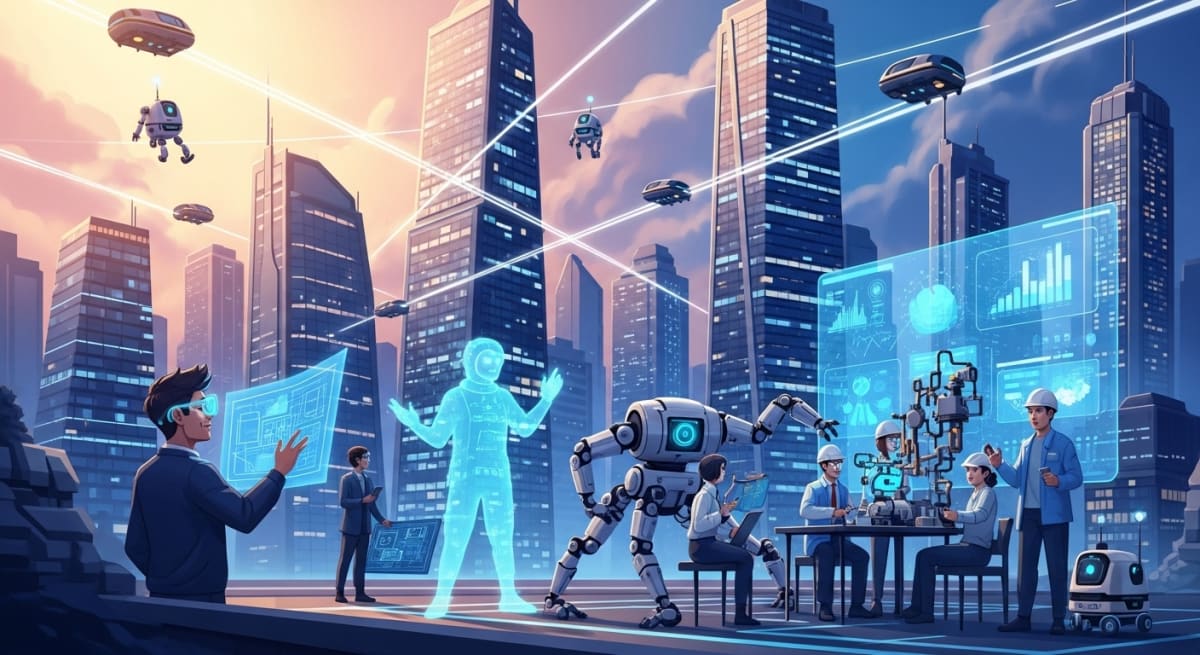
The Future of AI Agents and Agentic AI
The line between AI Agents and Agentic AI is starting to blur. Many modern tools combine elements of both for instance, a chatbot (AI Agent) that uses natural language processing and adaptive learning (Agentic AI) to improve over time.
Looking ahead:
Hybrid Systems: Businesses may increasingly adopt systems that blend task automation with autonomous learning.
Personalization: Finance, healthcare, and education will see AI offering deeply personalized insights and services.
Collaborative AI: Future AI could act as true collaborators not just assistants in decision-making and creativity.
Regulation & Governance: As Agentic AI grows more powerful, governments and organizations will need strong ethical frameworks to guide its development.
Final Thoughts
AI Agents and Agentic AI represent two different yet complementary branches of artificial intelligence.
AI Agents are powerful assistants that automate repetitive, predefined tasks, boosting efficiency.
Agentic AI takes things further by reasoning, adapting, and making autonomous decisions, opening the door to transformative innovations.
Both are vital in the evolving AI landscape. For businesses, choosing between them (or combining them) depends on whether the goal is to automate simple tasks or to enable intelligent, adaptive problem-solving.
As AI continues to advance, understanding these distinctions will help us prepare for a future where intelligent systems aren’t just tools but active collaborators shaping the way we live, work, and innovate.
Join the conversation
Sign in to share your thoughts and engage with other readers.
No comments yet
Be the first to share your thoughts!